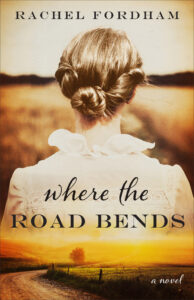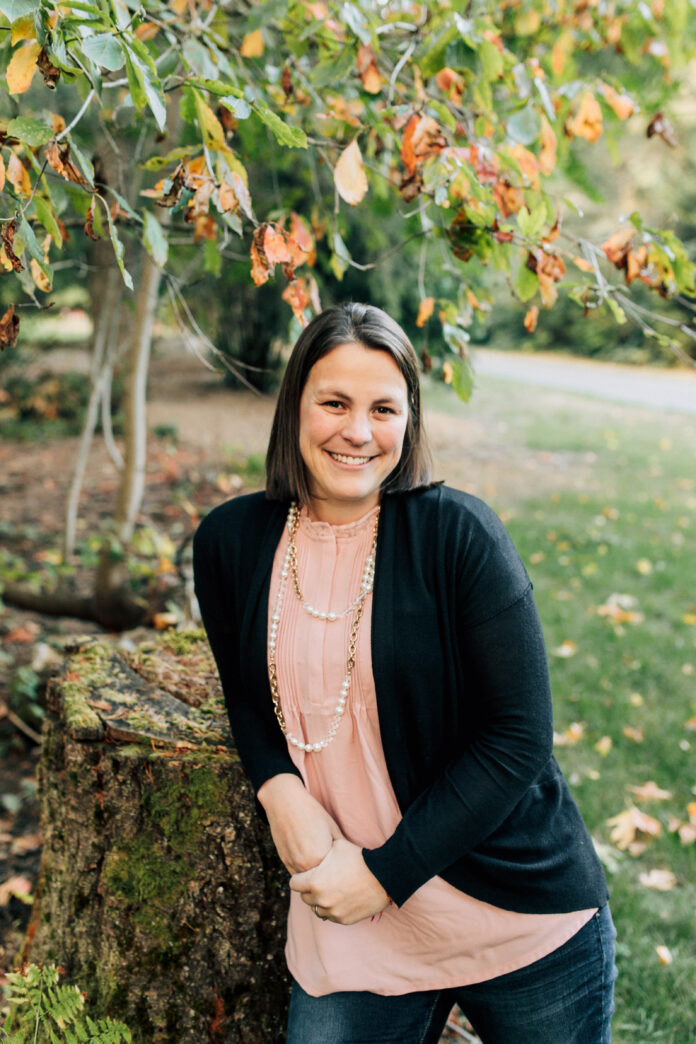Can you please provide a brief summary of your new novel, Where the Road Bends?
Just before entering a marriage of convenience, Norah King brings an injured man home with her and nurses him back to health. The two seem to have an instant connection, but he is penniless and has no home of his own. With no means to rescue her from her current situation, he leaves, vowing to be a better man.
He assumes she got married and is well taken care of and goes on with his life, though the image of Norah King is never far from his mind, or heart.
Years later, their paths cross once again, and he must face the fact that Norah’s life did not go how he’d expected—and he is largely to blame.
Quincy faces quite the predicament in this novel.
Without giving away too much, can you elaborate on the moral dilemma he’s caught in?
Poor Quincy ends up with a heavy burden of guilt all because he made an assumption rather than finding out the truth. His troubles get more complicated the longer he hides from his own guilt or tries to solve it without really solving it!
Without telling too much, I do want to note that his struggle to rationalize and ultimately own his poor choice is a dilemma readers will relate to. How many people have made a mistake and not known how to keep what they want and need, while also making amends?
Quincy also has more than just physical wounds that need healing. Can you tell us about his emotional state as well?
Quincy is not your typical upper-class hero. He’s a former boxer who fights for money in back alleys and lives recklessly in between. He’s been on his own since his teenage years, floundering with no real direction, until he meets Norah and realizes there is a different way to live.
Past poor relationships, a disheartening family life, and an uncertain sense of belonging make Quincy a deeply flawed character who you can’t help but root for.
Where Norah once was innocent, later in the novel, we discover she’s become more jaded. Can you elaborate on Norah’s character and what has shaped her?
Circumstances leave Norah struggling for survival. In the late 1800s, that means dwelling with a different, more unsavory crowd than she’s ever dealt with before. During these years she sees the cruelty humankind is capable of and fears she will forever be marked because of it.
What was the inspiration for your novel?
Two things triggered this story. While researching, I came across accounts of people who hid money in their clothing so it would not be stolen. My wheels started turning, and I asked myself, What if someone with no money were to discover hidden treasure in that way? Their whole life could change overnight.
Then my mind went to Les Misérables and the priest who changed Jean Valjean’s life. It’s a classic story of a fresh start, but he has a past that follows him.
Where the Road Bends is not Les Misérables, and my lead character doesn’t find money sewed into clothing. But it is a story of a man whose life course is altered by one decision and the repercussions, both good and bad, that follow.
What do you love most about writing novels in the historical fiction genre?
So many things! I love digging deep into the hearts of my characters and discovering that, though they live in a different time, they are not so different from people today. I love weaving in real pieces of history and the quest to find those unusual gems. I love the simpler times (I think I would have thrived in the late 1800s). It’s like going on an exciting vacation every time I start writing a historical novel!
What do you hope readers will gain from reading this novel?
First, I hope they feel thoroughly entertained and swept up in the Iowa landscape and the characters’ struggles and triumphs.
It’s also my hope that readers close the book, ponder the journey these characters have taken, and pull nuggets of wisdom from it. Are there people in our lives who are like Quincy? Destined to fail until someone intervenes. Are there times when we need to speak up and tell the truth, no matter how hard it is to do so?
I hope as readers journey with Norah and Quincy and cheer them on, that they also cheer for those around them in their real lives.
Are readers always promised a “happily ever after” in your novels? Why or why not?
I am a huge fan of happily-ever-after endings! I haven’t written a novel without one and can’t imagine doing so.
Having said that, I don’t mind tackling tougher issues and leaving some aspects of a story realistically resolved (which sometimes includes a sad reality). When viewed through the right lens, the messiness of life doesn’t have to be depressing and can add depth to a story.
That was a long way of saying, expect happily ever after from me, but the journey to it could have lots of bumps in the road.
Where can our audience go to connect with you?
I love connecting with readers! I’m on Facebook at facebook.com/rachelfordhamfans and on Instagram @rachel_fordham. I also have a website, rachelfordham.com, and you can sign up for my newsletter there.
WHERE THE ROAD BENDS Releases today!
 As Norah King surveys her family land in Iowa in 1880, she is acutely aware that it is all she has left, and she will do everything in her power to save it–even if that means marrying a man she hardly knows. Days before her wedding, Norah discovers an injured man on her property. Her sense of duty compels her to take him in and nurse him back to health. Little does she realize just how much this act of kindness will complicate her life and threaten the future she’s planned.
As Norah King surveys her family land in Iowa in 1880, she is acutely aware that it is all she has left, and she will do everything in her power to save it–even if that means marrying a man she hardly knows. Days before her wedding, Norah discovers an injured man on her property. Her sense of duty compels her to take him in and nurse him back to health. Little does she realize just how much this act of kindness will complicate her life and threaten the future she’s planned.
Norah’s care does more than aid Quincy Barnes’s recovery–it awakens his heart to possibilities. Penniless and homeless, he knows the most honorable thing he can do is head on down the road and leave Norah to marry her intended. But walking away from the first person to believe in him proves much harder than he imagined.






